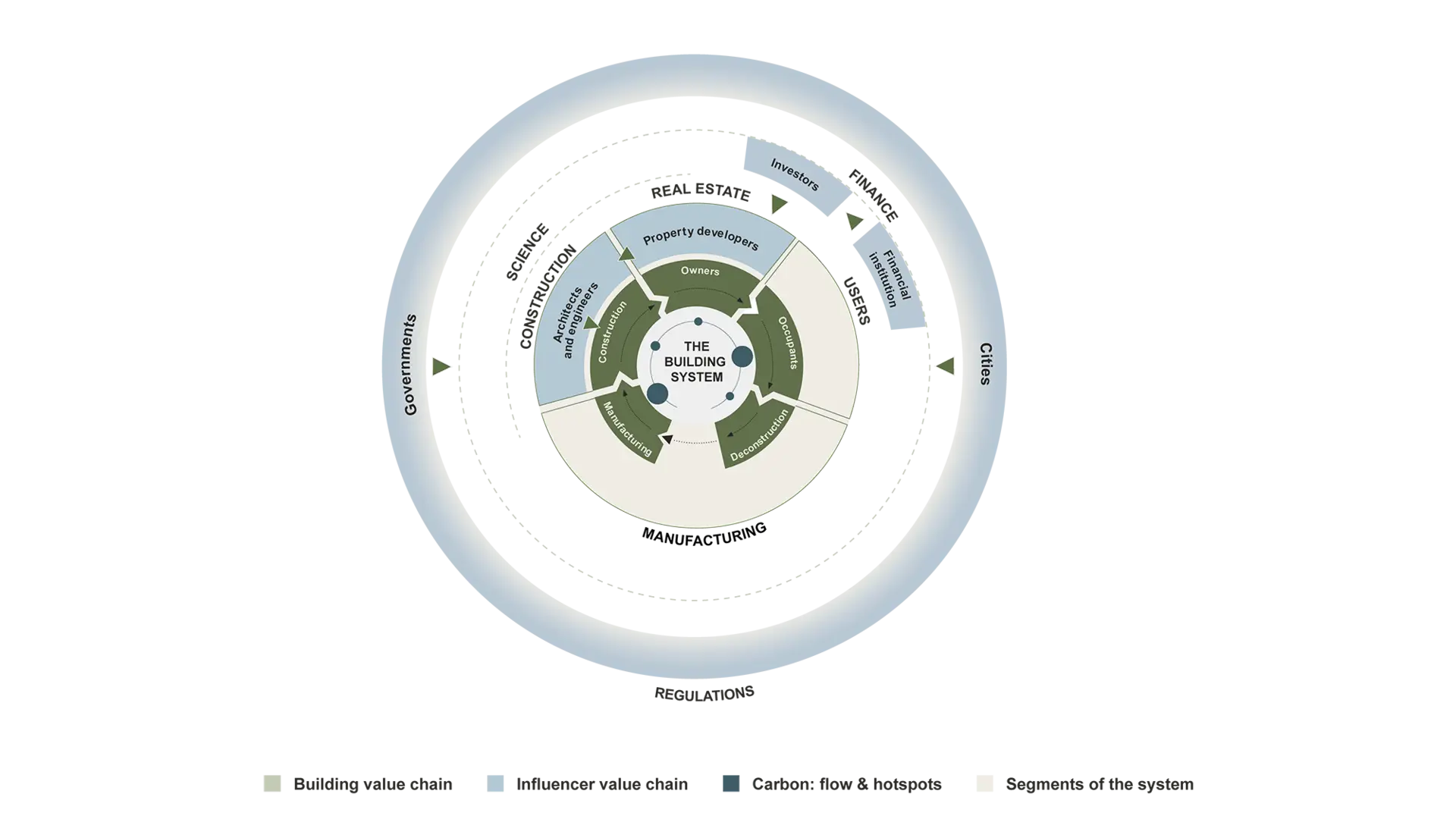Built Environment
Market Transformation Action Agenda
Joining forces to decarbonize the built environment by 2050
Why we need this action agenda
Launched in 2023, the Market Transformation Action Agenda is an ambitious project that brings together built environment stakeholders from all along the value chain to identify the key barriers preventing us from achieving a net zero built environment. It acknowledges the scale of change industry needs is only possible with deep and radical collaboration.
The outcome is a co-created transformative action agenda guiding the path towards halving emissions by 2030 and reaching net zero by 2050.
Stakeholders from across the built environment value chain are now invited to join us in driving and delivering the active transformation that the Agenda sets out.
Get a summary on what the Market Transformation Action Agenda is all about in this video recording by Roland Hunziker, Director Built Environment, WBCSD.
A call to collective action

We stand at a critical juncture for the planet and society. In order to limit global warming to 1.5°C and avoid unleashing severe climate change impacts, we have less than six years to halve emissions and less than three decades to achieve net-zero by 2050.
As of 2022, total global emissions from constructing and operating buildings and infrastructure were still rising, accounting for almost 40% of the global energy-related CO2 emissions. This alarming reality demands urgent attention and collective action.
Many existing initiatives aim to decarbonize the built environment and the Market Transformation Action Agenda brings these together under a common shared direction. It is guided by the UNFCC Race to Zero 2030 Breakthrough Goal that all new projects completed from 2030 are net zero carbon in operation, with at least 40% reduction in embodied carbon.
To reach our climate goals, the built environment value chain must unite and take bold and decisive action. The Market Transformation initiative gathers stakeholders together by issuing a clear call: it’s time for transformation.
Blueprint for Change: Market Transformation Levers
The Action Agenda builds on the foundational principles of the Market Transformation Levers for a Net Zero Built Environment, developed by the Global Alliance for Buildings and Construction (GlobalABC).
This work calls for actors from business, finance, policy and science to collectively advocate for a shared vision and commitment to systemic decarbonization by pulling on the three key transformational levers:
- 1. Adopt life-cycle thinking and Whole-Life Carbon Assessment across the full value chain and align key indicators, metrics and targets.
- 2. Integrate the carbon cost and reflect it in the price of products and services throughout the value chain, including in procurement and taxonomy.
- 3. Transform the supply and demand dynamics to incentivize low-carbon solutions based on the Whole-Life Carbon approach.
The holistic and performance-based approach underlying these three market transformation levers represents an opportunity for all stakeholders to innovate and scale solutions along the value chain, adapted to their context and environment and ultimately leading to transformative change for all.
Building Blocks for Action: 11 System Interventions
The Market Transformation Action Agenda is underpinned by a systems intervention point approach, which identifies specific action points that have the potential to shift the entire built environment system towards net zero. It emphasizes solutions to deep systemic barriers and results delivered within 1-3 years.
11 system interventions have been identified through a collaborative process involving several hundred leaders and practitioners from more than 100 organizations along the value chain. These interventions collectively constitute the building blocks of a successful transformation of the built environment system to deliver decarbonization at scale.
Some interventions are already partly or fully tackled by existing initiatives. The Action Agenda brings these together under a common global narrative to support and reinforce efforts, scale opportunities faster and maximize positive impact. If all actors join forces in addressing these interventions, we will see an acceleration of the decarbonization of the built environment on a global scale.
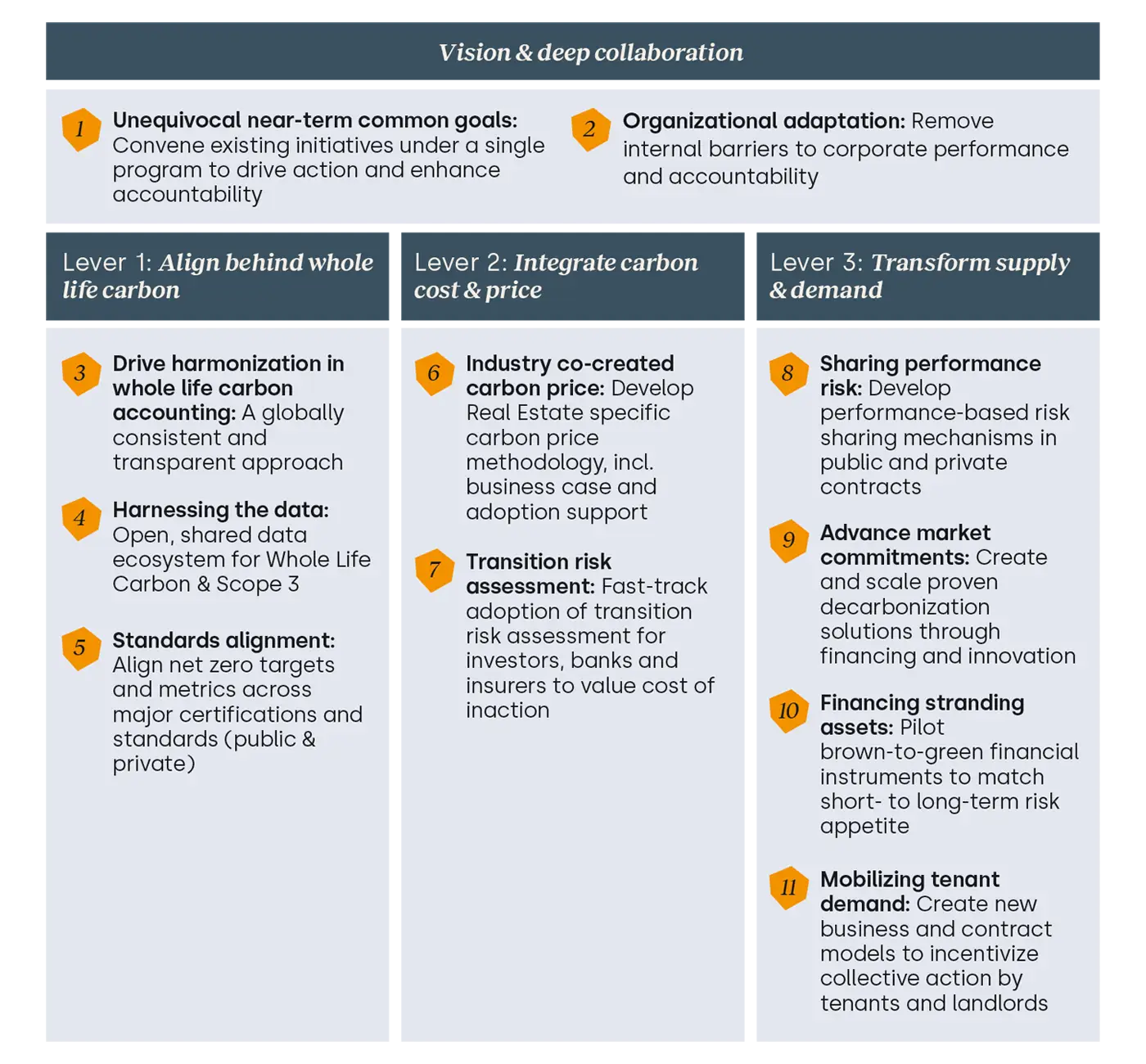
Market Transformation Action Agenda and Buildings Breakthrough
The Market Transformation Action Agenda outlines a collective roadmap for built environment stakeholders spanning the entire value chain, including business and finance stakeholders, cities, national governments, regulators and end users.
The Action Agenda relates to and supports the recommendations for international collaboration of the Buildings Breakthrough. Unveiled at COP28, this initiative calls on national governments around the world to join forces and make “near zero emission and resilient buildings to be the norm by 2030”.
The Market Transformation Action Agenda and the Buildings Breakthrough strongly support each other in the implementation of actions so that the collaboration encompasses private sector and public sector stakeholders who drive progress towards a common goal.
Join the transformation
We are inviting stakeholders from across built environment value chain – including finance, public sector and end users – to help drive the collective transformation laid out in the Action Agenda.
You can take action by:
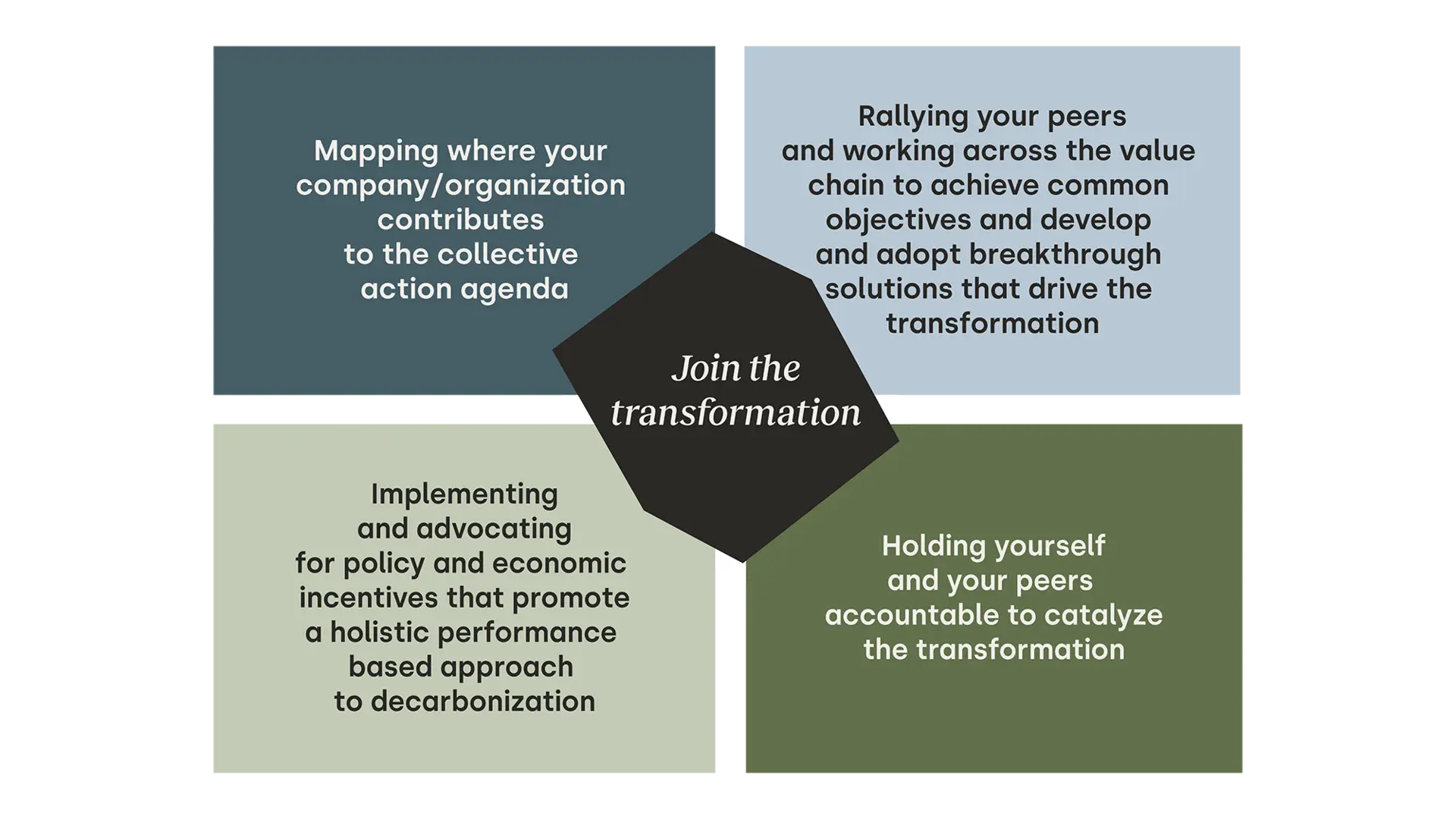
Endorsements
These organizations have contributed to developing the Market Transformation Action Agenda and endorse the call for collective shared action laid out here.
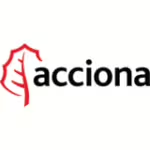



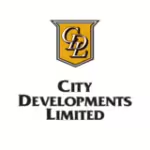
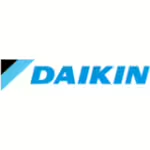







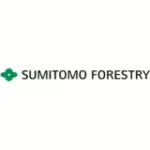

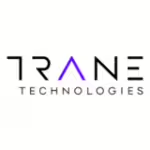
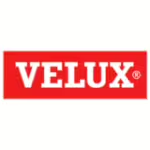
Quotes from CEOs
- Peter Bakker, President and CEO, WBCSD
- Justin Young, CEO, RICS
- Lisette van Doorn, CEO Europe, Urban Land Institute

